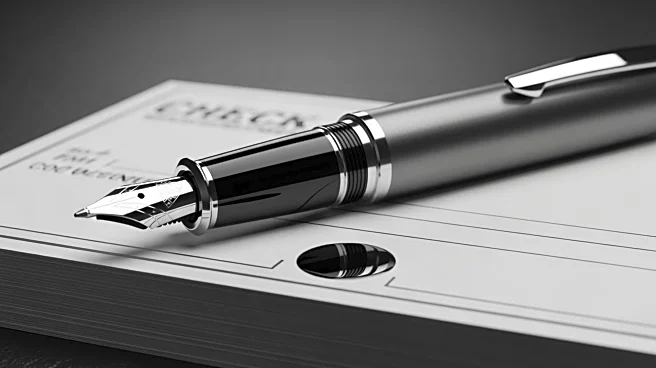What's Happening?
A new form of fraud known as 'check washing' is emerging, allowing criminals to alter checks and redirect payments. This method involves stealing checks from mailboxes, erasing the ink, and rewriting the check to a different
payee or amount. The rise in this type of fraud has prompted warnings from authorities and financial institutions, urging individuals to be vigilant about their check transactions. The process of check washing is facilitated by common household chemicals, making it accessible to criminals. This development highlights the ongoing challenges in securing financial transactions against evolving fraudulent tactics.
Why It's Important?
The emergence of check washing poses significant risks to individuals and businesses relying on checks for transactions. As checks remain a common payment method, especially among older demographics and small businesses, the potential for financial loss is substantial. This type of fraud can lead to unauthorized withdrawals from bank accounts, causing financial strain and requiring time-consuming efforts to resolve. Financial institutions may face increased pressure to enhance security measures and educate customers on safeguarding their checks. The broader impact includes potential shifts towards more secure digital payment methods as trust in traditional checks diminishes.









